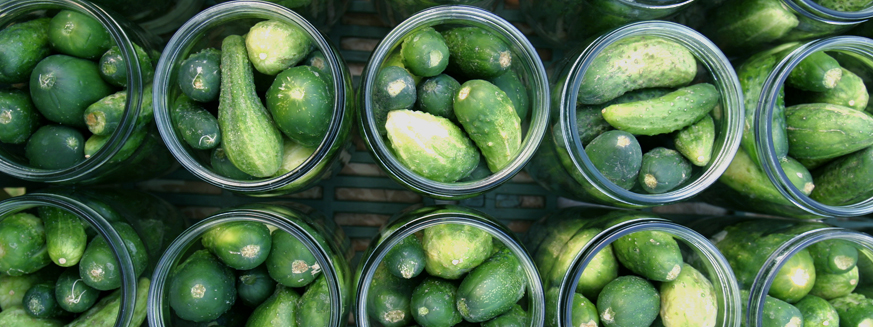The Fresh Blog
Lifestyle, Health, Nutrition & Inspiration from Luvo
Are Pickled Foods Nutritious?
Pickled foods are having a moment. You know they’re part of the zeitgeist when they get lampooned by the TV show Portlandia, as they did a few seasons ago. It seems almost any edible item is capable of being pickled these days—and why not? Pickles add a pleasant pop of flavor to any plate. But as pickling remains a popular approach, the facts about their nutritional profile is not well understood.
Past people pickled packs of perishable peppers and other fruits and vegetables (sorry—ran out of “p” words) to preserve them during cold winter months when fresh options weren’t available. That’s the origin of pickling. Today, in many places, we import fresh foods from all over the world, so pickling isn’t essential, though it’s still enjoyed by many. In parts of the world, pickled foods are a major part of the national cuisine. So it makes sense to understand their nutritional impacts.
In a nutshell, the nutritional story around pickles depends on how you make them. As most people are aware, pickles can be made in a few different ways. Two of the most common are by bathing vegetables in an acidic solution—often involving vinegar—or by soaking them in a salty brine to induce fermentation. The vinegar method, often referred to as quick pickling, is faster. It can be done in a few days at home.
Fermenting takes longer, but has a few nutritional advantages: the fermented approach allows certain microbes and good bacteria to thrive, which can have probiotic benefits such as aiding digestion. Check out this post we did on sauerkraut, a popular fermented food. And if you haven’t tried kimchi, you’re missing out. You’ll want to read up on it here.
What happens to the nutrients in pickled vegetables? When vegetables are soaked, whether in brine or vinegar, they actually lose some water-soluble nutrients—such as vitamins B and C and folic acid—which are leeched out into the pickling juice. It’s also important to keep in mind that eating fermented pickles gives you a major dose of salt, so you want to go easy on them. They’ve also been shown to increase the risk of esophageal cancer.
Overall, pickled vegetables have an interesting nutritional story. They’re something entirely different, a complement to your diet, providing a punch of flavor. Fermenting foods provide a source of fruits and vegetables when you can’t get them fresh, and offer fibre, some nutrients and, in some cases, probiotics. But the bottom line is that, for the most part, focusing on fresh is probably best.
What are your favorite pickled picks? Got any tips for making your own? Spill your secrets in the comments and on Twitter at @luvoinc.


